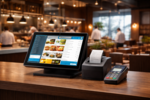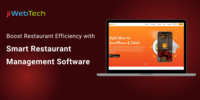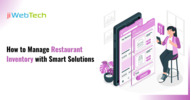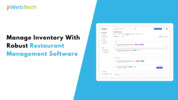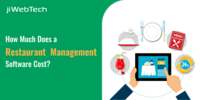- Nov 14, 2023
Share this post on:
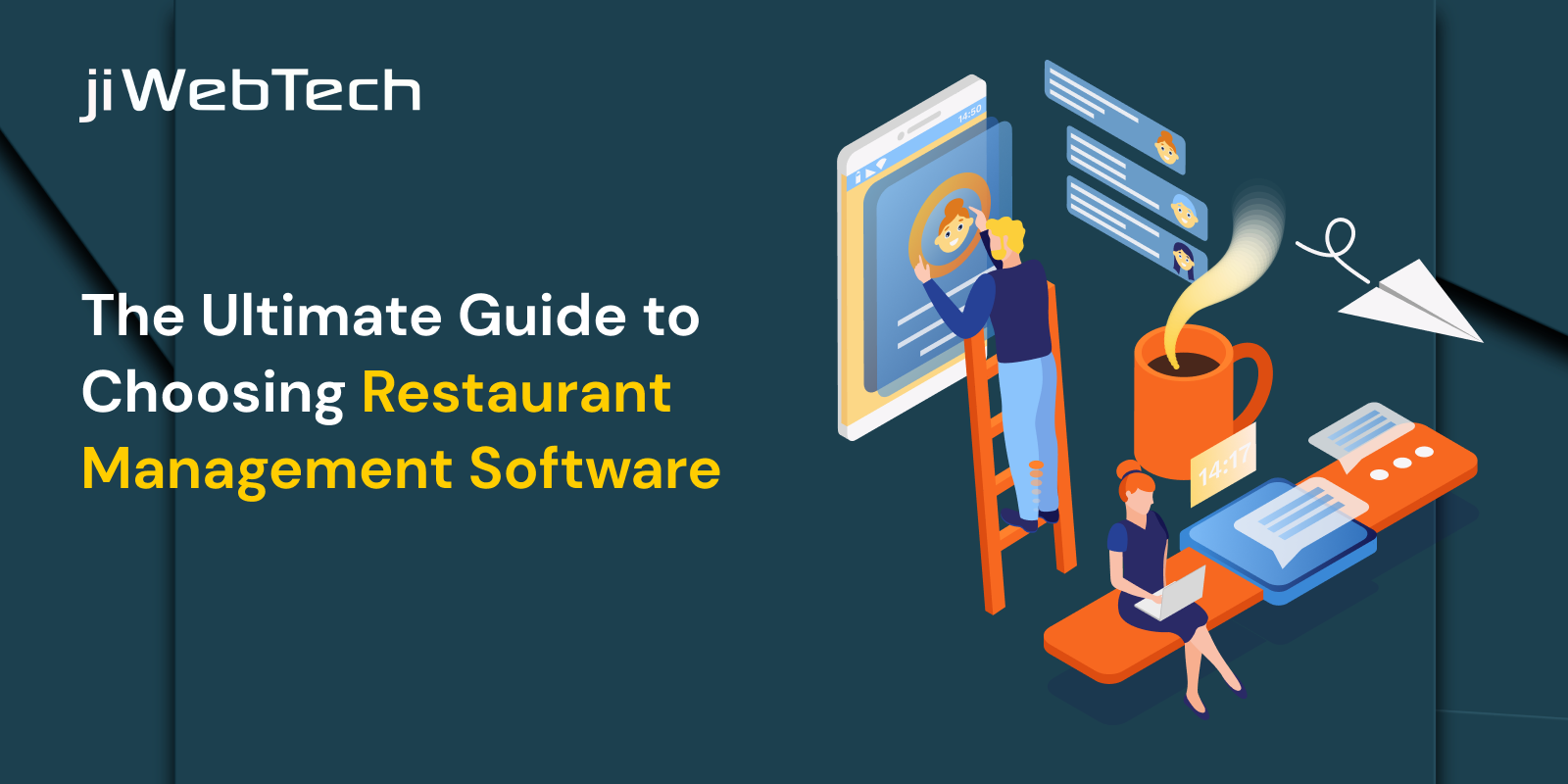
In today's fast-paced and highly competitive food service industry, restaurant management software has become an essential tool for any establishment. This software has become a critical component of any successful restaurant business. According to research, the current restaurant market size is expected to grow at a CAGR of 16.3% from 2023 to 2030.
To learn more about restaurant management software, you can check out our other articles:
Importance of Restaurant Management Software
Let us dive more into the articles and learn about the importance of Restaurant Management Software in your business.

Inventory Management: One of the most significant benefits of restaurant software is its ability to manage inventory. By tracking inventory levels and alerting staff when it's time to restock, restaurant management software can help ensure that establishments never run out of key ingredients or overstock unnecessary items. This can help reduce waste, save money, and ensure that customers always have access to the ingredients they need.
Order Management: A restaurant software solution can also help streamline the order management process. It helps businesses by allowing customers to place orders electronically, either online or through a mobile app. Establishments can reduce the risk of errors and improve the speed of service. This can lead to increased customer satisfaction, higher sales, and improved profitability.
Customer Relationship Management: Restaurant software can also help establishments manage their customer relationships. This software helps you track customer preferences, ordering habits, and other key data points, establishments can tailor their marketing efforts and improve the overall customer experience. This can lead to increased customer loyalty, higher repeat business, and improved profitability.
Financial Reporting: Another critical benefit of restaurant management software is its ability to provide financial reporting. By tracking sales, costs, and other key financial metrics, establishments can gain a better understanding of their financial performance and make data-driven decisions to improve their bottom line. This can help establishments identify areas for cost savings, optimize pricing, and improve profitability.
Staff Management: This software can help establishments manage their staff more effectively. Establishments can ensure that they have the right staff on hand at the right time by tracking employee schedules, time-off requests, and other key data points. This can help improve customer service, reduce turnover, and increase profitability.
Several Points to Consider When Choosing a Restaurant Management Software
Choosing the right restaurant management software is crucial for the success of any food service establishment. With the advancements in technology, there are numerous options available in the market, each offering different features and functionalities. To make an informed decision, it is important to consider several points when selecting software.

Scalability and Customization: One of the key factors to consider when choosing software for your restaurant is its scalability and customization options. The software should be able to grow with your business and accommodate your changing needs. It should have the ability to handle an increasing number of orders, tables, and customers without compromising on performance. Additionally, it should offer customization options that allow you to tailor the software to fit your specific requirements and workflows.
Features and Functionality: Another important consideration is the features and functionality offered by the software. It should have all the essential modules required for efficient restaurant operations, such as table management, reservation system, menu management, inventory control, employee scheduling, reporting and analytics, online ordering integration, and customer relationship management (CRM) tools. The software should also be user-friendly with an intuitive interface that is easy to navigate for staff and customers.
Integration and Compatibility: The software should seamlessly integrate with other systems you use in your establishment, such as point-of-sale (POS) systems, accounting software, online ordering platforms, loyalty programs, and third-party delivery services. This integration ensures smooth data flow between different systems, eliminates manual data entry errors, and improves overall operational efficiency.
Cloud-Based vs. On-Premises: Another consideration is whether to opt for cloud-based or on-premises restaurant management software. Cloud-based solutions offer several advantages such as remote access from any device with an internet connection, automatic updates, data backup and recovery, and scalability without the need for additional hardware investments. On the other hand, on-premises solutions provide more control over data security and may be preferred by establishments with specific compliance requirements.
Cost and Return on Investment (ROI): The cost of the software and the return on investment it offers are important factors to consider. It is essential to evaluate the pricing structure, including any upfront costs, monthly or annual subscription fees, and additional charges for add-on modules or support. Additionally, consider the potential cost savings and operational efficiencies that the software can bring to your business in terms of labor costs, inventory management, and customer satisfaction.
Training and Support: Adequate training and ongoing support are crucial for the successful implementation of restaurant software. Look for a vendor that provides comprehensive training programs for your staff to ensure they can effectively use the software. Additionally, consider the level of technical support offered by the vendor, including availability, response time, and methods of communication.
Security and Data Protection: Given the sensitive nature of customer data and financial information involved in restaurant operations, security and data protection should be a top priority when selecting management software. Ensure that the software complies with industry standards for data encryption, secure access controls, regular backups, and disaster recovery plans.
User Reviews and Recommendations: It is beneficial to read user reviews and seek recommendations from other restaurant owners or industry professionals who have experience with different restaurant management software. Their insights can provide valuable information about the pros and cons of various options and help you make an informed decision.
Must-have features of Restaurant Management Software
A good Restaurant Management Software should possess several key features to effectively streamline and optimize the operations of a restaurant. These features are essential for managing various aspects of the business. The following are some must-have features of good restaurant software:

Point of Sale (POS) System: A robust POS system is crucial for any restaurant software. It should have an intuitive interface that allows staff to quickly and accurately process orders, split bills, accept multiple payment methods, and generate receipts. The POS system should also integrate with other modules of the software to ensure seamless communication between different departments.
Menu Planning and Recipe Management: A good restaurant software solution should enable efficient menu planning and recipe management. It should allow chefs to create and update menus easily, specify ingredient quantities for each dish, calculate food costs, and analyze profitability. The software should also support recipe scaling to adjust portion sizes based on customer demand.
Table Reservations and Waitlist Management: To enhance customer experience and optimize table utilization, the software should offer table reservation functionality. It should allow customers to make reservations online or through mobile apps, provide real-time availability updates, manage table assignments efficiently, and maintain a waitlist for walk-in customers.
Staff Scheduling and Labor Management: Efficient staff scheduling is crucial for maintaining optimal staffing levels while minimizing labor costs. The software should enable managers to create schedules based on forecasted demand, track employee availability and time-off requests, facilitate shift swapping, and generate reports to monitor labor costs and productivity.
Customer Relationship Management (CRM): A good restaurant management software should include CRM features to help build and maintain customer relationships. It should store customer information, track preferences and dining history, facilitate personalized marketing campaigns, and enable loyalty programs to reward repeat customers.
Reporting and Analytics: Comprehensive reporting and analytics capabilities are essential for monitoring the restaurant's performance and making data-driven decisions. The software should provide detailed reports on sales, inventory, labor costs, profitability, and other key metrics. It should also offer customizable dashboards and data visualization tools to present information in a clear and actionable manner.
Integration with Third-Party Systems: The ability to integrate with other systems is crucial for restaurant management software to streamline operations further. Integration with accounting software, online ordering platforms, delivery services, loyalty programs, and other relevant systems can enhance efficiency and provide a seamless experience for both staff and customers.
Conclusion
In conclusion, choosing the right restaurant software solution requires careful consideration of factors. The above-mentioned points can help you select a software solution that best fits your restaurant's unique needs and contributes to its overall success. Want to learn more about Restaurant Management Software? Contact us.






